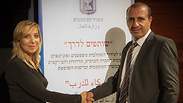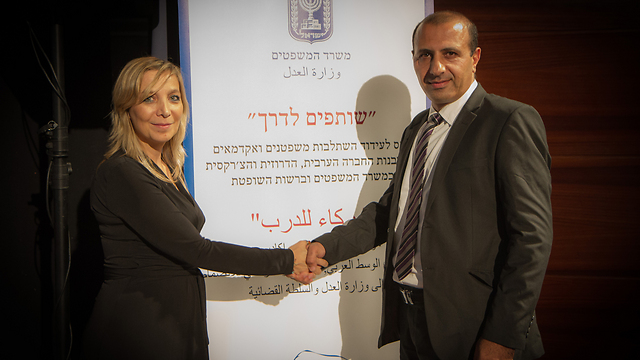
Israel delegation anticipates tough questioning by UN rights panel
Human Rights Committee has invited Israel, as signatory to international convention on civil rights, to address claims of rights violations.
A senior Israeli delegation that arrived in Geneva on Sunday is bracing for a grilling at its appearance before the United Nations' Human Rights Committee, in light of the summer's conflict in Gaza.
The committee, which is responsible for examining the implementation of the International Covenant on Civil and Political Rights (ICCPR), is expected to press the Israeli team on the management of Operation Protective Edge, as well as on a range of other human rights issues.
Every few years, states that are signatories to the ICCPR are invited to present their policies and respond to complaints about human rights violations on their soil. Israel's appearance is scheduled for Monday.
In light of the anticipated challenge, Israel has sent an atypically broad delegation, which for the first time includes a representative of the Justice Ministry's uppermost echelons, with ministry director-general Emmy Palmor heading the delegation.
Palmor is accompanied by senior officials from various government departments, including the deputy attorney-general for international law, Dr. Roi Sheindorf; the head of economic development for the Arab sector at the Prime Minister's Office, Ayman Saif; and the head of the international law at the Military Advocate General, Colonel Noam Newman.
The 18-strong UN committee, comprised of human rights experts including Professor Yuval Shany of the Hebrew University, will question the Israeli delegation for three hours.

One of the central issues on the agenda is Protective Edge; the Israeli delegation is expected to adhere to the state's position that the operation included regular in-depth oversight from legal experts who checked that the operation abided by international law. The delegation will emphasize Israel's adherence to self-examination.
"We will show how Hamas fired from civilian areas, and how we canceled actions for fear of harming civilians," Palmor told Ynet. "Also present will be the international deputy to the attorney-general and the army's designated leader on the issue, who will testify in person how they were consulted and how when they said no, there were no operations."
The delegation anticipates questioning on the Gaza Strip in general; the regions of Judea and Samaria and East Jerusalem; the prisoners exchanged in Shalit deal who have been re-imprisoned; the jail conditions for security and administrative prisoners and their hunger strikes; foreign workers, illegal entrants to Israel and asylum seekers; the rights of the Arabs and other minorities in Israel; the status of women and people with disabilities.
"We have a lot of things to be proud of, we're not going there with the feeling that we should come with shields or that they will throw tomatoes at us. We know there will be tough questions, and we are ready for them," Palmor said.
"We ourselves will be showing what the state is doing on many other levels. I'm not going to pretend that we will be leaving with a commendation for Israel, but I believe you can give a very serious and professional response and provide a broader picture of the State of Israel. Although this is a political arena and a professional arena, it is also an influential one."










